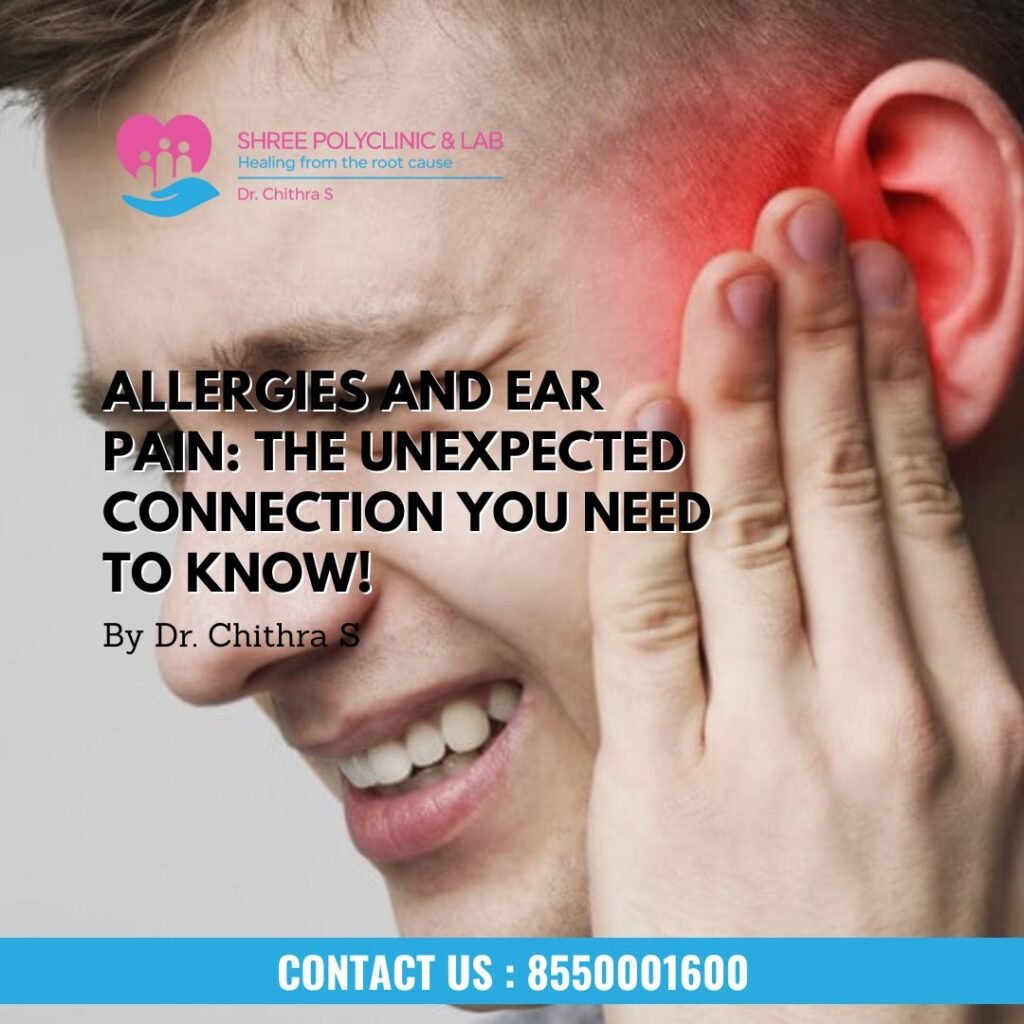Ear pain is a common complaint that can stem from various causes, including infections, injuries, or even sinus problems. However, many people don’t realize that allergies can also play a significant role in causing ear pain. If you frequently experience ear discomfort along with symptoms like sneezing, congestion, and watery eyes, allergies might be the culprit.
How Allergies Affect the Ears
Allergies occur when the immune system overreacts to allergens such as pollen, dust, mold, or pet dander. This reaction triggers inflammation and mucus production, which can affect the ear in multiple ways:
- Eustachian Tube Dysfunction – The Eustachian tube connects the middle ear to the back of the throat, helping regulate pressure and drain fluid. Allergies can cause swelling and blockages in this tube, leading to a feeling of fullness, popping, or pain in the ears.
- Fluid Buildup in the Middle Ear – Increased mucus production due to allergies can lead to fluid accumulation in the middle ear. This can create discomfort, pressure, and sometimes temporary hearing loss.
- Increased Risk of Ear Infections – When the Eustachian tube is blocked, it creates an ideal environment for bacteria or viruses to grow, increasing the risk of ear infections, which can cause significant ear pain.
Symptoms of Allergy-Related Ear Pain
If allergies are the cause of your ear pain, you might also experience:
- Ear pressure or fullness
- Muffled hearing
- Itchiness in the ear
- Popping or clicking sounds
- Sinus congestion and postnasal drip
How to Manage Allergy-Induced Ear Pain
If you suspect that allergies are contributing to your ear pain, here are some strategies to alleviate the discomfort:
- Avoid Allergens – Identify and minimize exposure to allergens by keeping windows closed during high pollen seasons, using air purifiers, and cleaning your living space regularly.
- Use Antihistamines and Decongestants – Over-the-counter antihistamines can help reduce allergic reactions, while decongestants may relieve sinus congestion and pressure affecting the ears.
- Nasal Irrigation – Saline sprays or neti pots can help clear nasal passages and prevent mucus buildup.
- Apply Warm Compresses – A warm compress placed over the ear can provide relief by reducing inflammation and promoting fluid drainage.
- Consult a Doctor – If ear pain persists or worsens, consult a healthcare provider to rule out infections and discuss other treatment options, such as allergy shots or prescription medications.
Conclusion
There is indeed a strong link between allergies and ear pain, primarily due to congestion, inflammation, and Eustachian tube dysfunction. Understanding this connection can help you manage your symptoms effectively and prevent complications. If you suffer from chronic ear pain and allergies, seeking medical advice can provide the best course of action to improve your quality of life.

